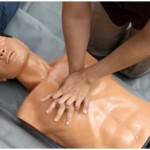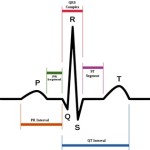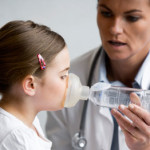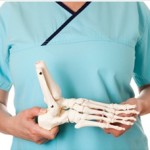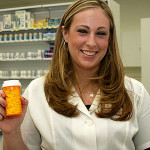Although as a nurse you will frequently need to advice patients on measures to help them lose excess weight, you will also find that you are asked about the best steps to aid weight gain. This is no surprise when you consider that at least a third of hospitalized patients are undernourished and many people living with chronic health problems such as COPD, rheumatoid arthritis and cancer also experience unintentional weight loss. Alternatively, when conducting routine health checks for people who are otherwise fit and well, they too may ask you about this if they are interested in increasing their lean body mass to improve their sporting performance or physique.
There are a number of dietary measures that can be taken to aid an increase in muscle mass and these are preferable to the use of anabolic steroids, which are associated with a number of short and long-term health problems. These steroids may occasionally be used under medical supervision for the treatment of muscle wasting, but are not usually a routine option and certainly shouldn’t be used by athletes for the purposes of muscle-building, as this is an unnecessary risk and may lead to steroid dependency. Similarly, while energy and protein-dense nutritional supplements have their place in the management of disease-related malnutrition, the use of protein-based supplements to increase muscle bulk to enhance sporting performance is more questionable. Even with the increased requirements for protein brought by intense physical activity, with a healthy appetite these can usually be met through dietary means alone by increasing intake of protein-rich foods at mealtimes and as part of snacks.
Increasing Protein In The Diet
When weight gain is the aim, protein should be included with each meal and snack, particularly after exercise as this is the time when muscle-building takes place. It is essential that you can advise on all the sources of protein in the diet, as owing to dietary restrictions – whether medical or self-imposed – not everyone will necessarily eat meat, fish, eggs and dairy produce. If this is the case, pulses (beans, lentils and peas), nuts, seeds, meat substitutes such as Quorn, soya mince and tofu, dairy-free milks and wholegrains should be advocated as well.
When appetite is poor, protein-rich options can be added to existing items so that the volume of food someone is faced with is not off-putting. For instance, cheese can be added to mashed potato, meat or meat-substitutes can be introduced to soups and coffee can be made up fully with milk or milk-free alternatives. Indeed, milk-based drinks are an effective way to increase dietary protein when other options have been exhausted and the protein content can be enhanced further by the addition of milk powder to each cup of milk used. However, while frail seniors and anyone undernourished can benefit from full-fat milk, low-fat versions are a better option for someone with raised cholesterol or who is looking to bulk up for sporting purposes. Protein-rich desserts such as yogurt, custard, rice pudding, blancmange and ice cream are another food option when appetite is limited.
Increasing Calorie Intake
Besides increasing protein intake, it is important that there are adequate calories in the diet to enable an increase in muscle mass to take place, as it is an energy intensive process. Eating regular meals and snacks that contain energy-dense foods is the best way to achieve this. As part of this, carbohydrate should appear at each eating occasion, as glucose is the body’s preferred energy source and this sugar raises insulin levels, which itself promotes muscle-building. However, fats are another helpful way to boost energy intake. These should ideally come from unsaturated sources such as vegetable oils, nuts, seeds, avocados and oily fish. However, when advising someone who is unwell, it is acceptable to be more generous with use of butter on items such as bread and potatoes, and to add cream to the likes of porridge and desserts, as the benefits of preventing malnutrition far outweigh the risks from short-term dietary changes that increase saturated fat. Similarly, in disease-related malnutrition items such as sugar, syrup, honey and jelly can be added to sweet dishes to further boost calories, as long as the person receiving the food doesn’t have diabetes.
Eating regularly during the day, including protein-rich foods and drinks, and ensuring overall calorie intake is adequate is a safe way for anyone looking to gain weight to do so.
Eve Pearce – Nutrition Care



